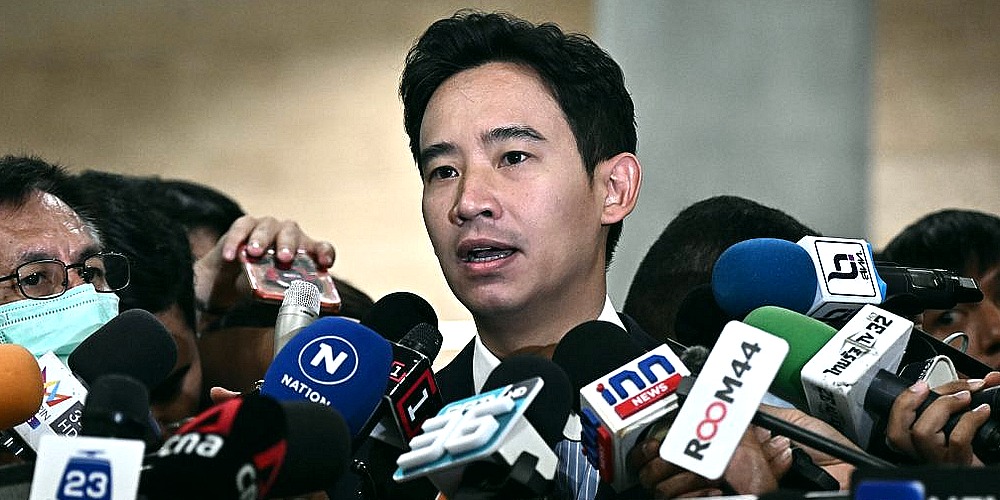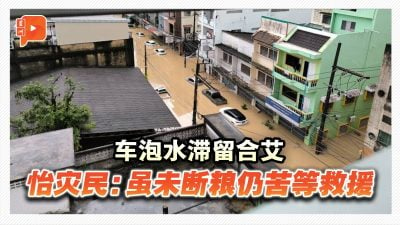BANGKOK: Thailand’s parliament opened Thursday to vote for a prime minister, with frontrunner Pita Limjaroenrat insisting he was confident of victory despite a barrage of last-minute hurdles that could undo his premiership bid.
It is a pivotal moment in the dramatic aftermath of his progressive party’s shock May election win, with fears for renewed political instability in a country that has seen over a dozen military coups in the last century.
To win, Pita needs support from at least some members of the country’s more established parties and junta-appointed senators, who were spooked by his Move Forward Party’s victory and horrified by its plans to amend the kingdom’s strict royal defamation laws.
Complicating his path to top office further, Pita faces the threat of parliamentary suspension, and two cases that have been filed against him and his party.
He was nonetheless bullish ahead of Wednesday’s session, where lawmakers will debate for long hours before beginning to cast their votes.
“I am confident in myself that I will work with my full capacity to respond to people’s hopes and the support that they gave to me,” Pita told reporters ahead of the session opening.
“I will try my best to show my vision, explaining to all the senators’ doubts.”
As the session began, the streets approaching parliament were empty of people, and razor wire could be seen on highway overpasses.
Containers covered by tarpaulins decorated with images of Thai landmarks ringed the parliament compound perimeter.
‘Fully qualified’
The elections in May saw Thais reject the government of Prayut Chan-o-cha, and Pita’s MFP has formed an eight-party coalition that includes election runners-up Pheu Thai.
But the chances of Pita leading the coalition into government are looking increasingly slim.
The coalition holds 312 seats, short of the 375 it now needs across both houses of parliament to claim the prime ministership.
Finding those votes will prove difficult in the military-appointed, 250-member Senate because of the MFP’s push to reform section 112 of Thailand’s criminal code, which bans defaming or insulting the royal family.
His plans to shake up the country’s powerful business monopolies have also sparked concern.

Another hurdle emerged Wednesday when the Election Commission recommended Pita’s suspension from parliament over allegations he broke campaign rules — a move the MFP branded as an “abuse of power.”
The recommendation followed a probe into Pita’s ownership of shares in a media company, prohibited under Thai law.
Pita has said he inherited the shares in the iTV television station, which has not broadcast since 2007, from his father and denies any wrongdoing.
In parliament Thursday, he defended himself again, telling lawmakers: “I am fully qualified.”
‘Anything is possible’
But it was clear the allegations will color the vote.
“The parliament cannot accept Pita’s name for consideration because he is prohibited to become a minister,” conservative senator Praphan Koonmee told parliament, referencing the EC decision.
No other parties have announced alternative candidates.
If Pita loses the first vote, the house speaker will table session after session until a prime minister emerges — raising the specter of weeks of deadlock and economic uncertainty.
Now-caretaker Prime Minister Prayut — whose United Thai Nation party finished a dismal fifth in the May elections — has announced his retirement from politics but will remain premier until a new prime minister emerges.
May’s election was the first since huge pro-democracy demonstrations swept the capital Bangkok in 2020, when tens of thousands of people made unprecedented calls to reform the royal defamation laws.
Pita’s MFP was the only party that campaigned on tackling the issue, but that too has landed it in trouble.
On Wednesday, the Constitutional Court accepted a case alleging that the promise amounts to attempting to “overthrow” the constitutional monarchy. The party has two weeks to present their defense.
Napisa Waitoolkiat, a political analyst with Naresuan University, told AFP that it appeared less and less likely that Pita would become the premier.
But she added: “Anything is possible in Thailand.”
ADVERTISEMENT
ADVERTISEMENT








































